PSM researchers work with Michigan agriculture
Researchers with the Department of Plant, Soil and Microbial Sciences (PSM) work directly with stakeholders to increase productivity and sustainability for Michigan’s diverse agriculture industries.

The partnership is proving fruitful
Michigan State University is one of the top 100 research universities in the world, and in the top 10 for agriculture research. In collaboration with MSU Extension (MSUE), the Department of Plant, Soil and Microbial Sciences (PSM) works directly with stakeholders to increase productivity and sustainability for Michigan’s diverse agriculture industries
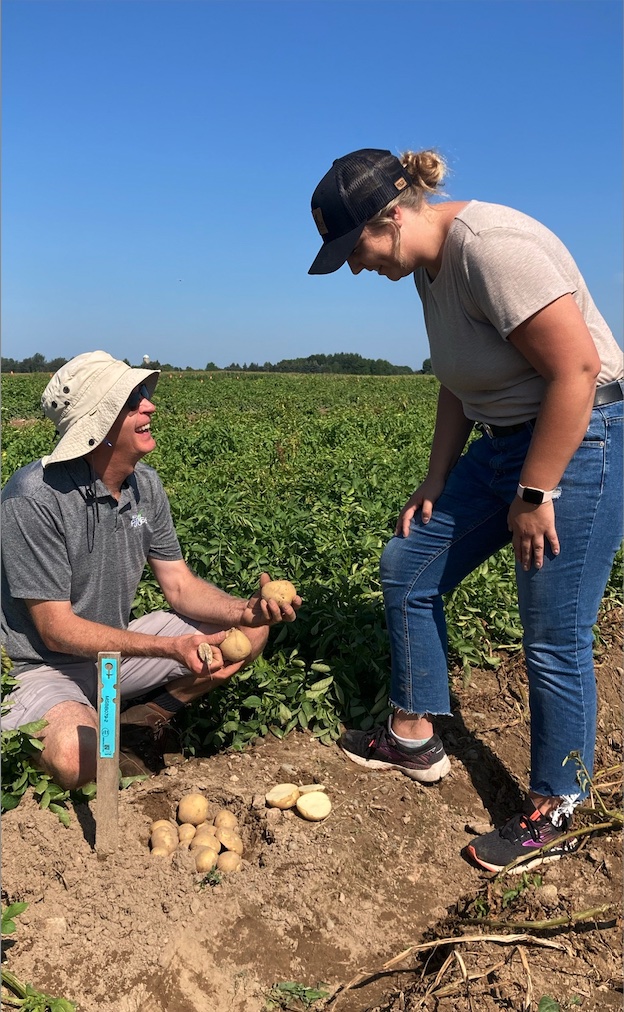
As part of MSU’s land-grant mission, MSUE has motivated PSM students, staff and faculty to work together with the agriculture industry to produce the best varieties, identify efficiencies, be the best stewards of the land and introduce new technology for farmers for more than 100 years.
In a growing trend, several PSM Faculty are partnered 50/50 with commodity groups.
“Michigan agriculture is facing many new challenges, and we see the success of our partners as our own success,” says Dr. Brian Horgan, Plant, Soil and Microbial Sciences chair. “And these partnerships are successful on many levels.”
Here we see just how MSU Extension works to promote productivity in potatoes, wheat, dry beans, and sugarbeets, and how it works better with commitment from industry.
Potatoes
Chris Long, MSU Extension potato specialist, collaborates with MSU potato research as well as with the Michigan Potato Industry Commission, seed growers and commercial processors to cultivate ‘a circle of life,’” says Long. Industry also provides 100 percent support for a research assistant, which creates “a team approach—with research findings and ideas flowing back and forth.”
Long also coordinates the National Chip Potato Variety Trialing Program, sponsored by Potatoes USA. Since this cooperative program began, Michigan has become the most productive state for chipping potatoes.
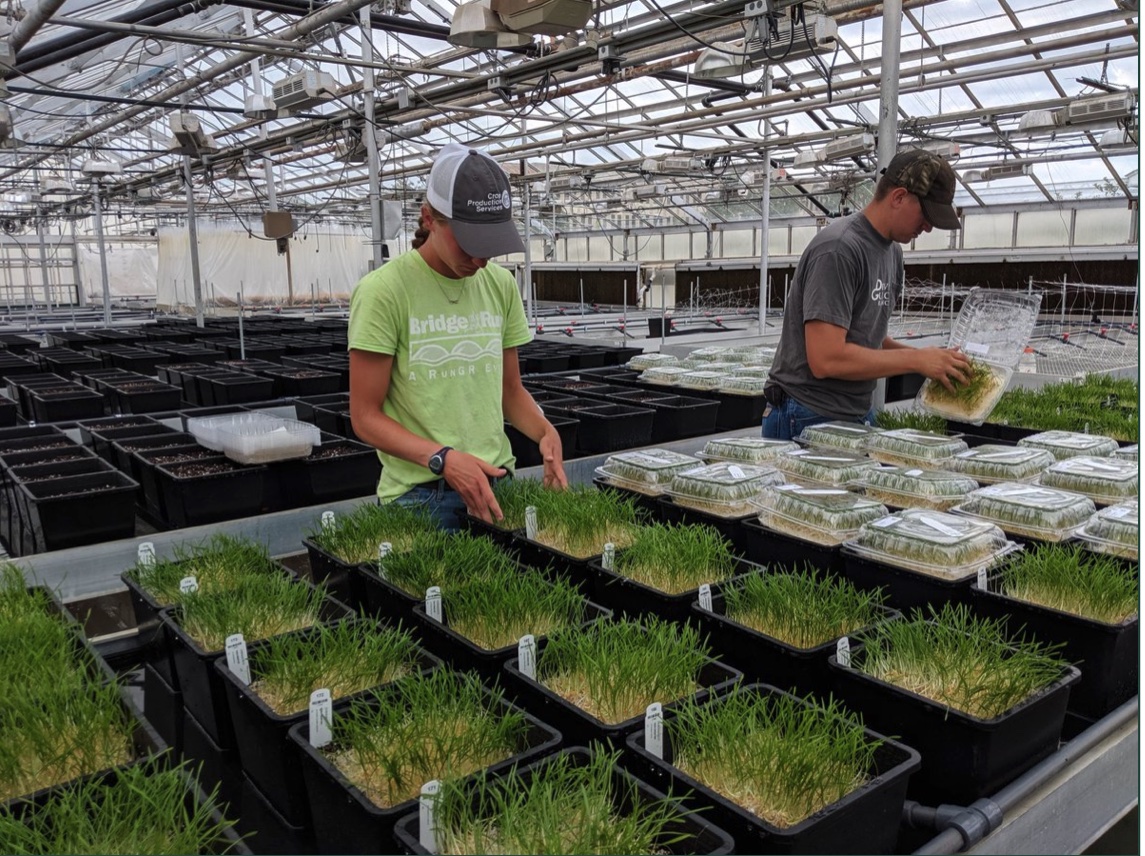
Wheat
PSM Faculty member and wheat systems extension specialist Dennis Pennington has helped producers connect with research since 1997. Recently, Pennington worked with Jody Pollok-Newsom, executive director of the Michigan Wheat Program, to create the Great Lakes Yield Enhancement Network (YEN), an international collaborative effort between MSU, MI Wheat, Grain Farmers of Ontario, University of Guelph and the Ontario Ministry of Agriculture Food and Rural Affairs.
In the program, farmers compete in a wheat-yield contest, and then share their production data with each other. “The team just wrapped up a proof-of-concept year in which they gathered data on 250 variables at 43 farms,” says Pennington, who will help wheat growers learn from each other about how to raise the bar on wheat yields. “The regional nature of this project combined with international collaborators allows us to compare results across the globe. The ultimate goal is to develop benchmarks for things like seeding rates, fertilizer management, fungicide application and yield components, allowing wheat growers to analyze their own farm to see if they are on track for high yields.”
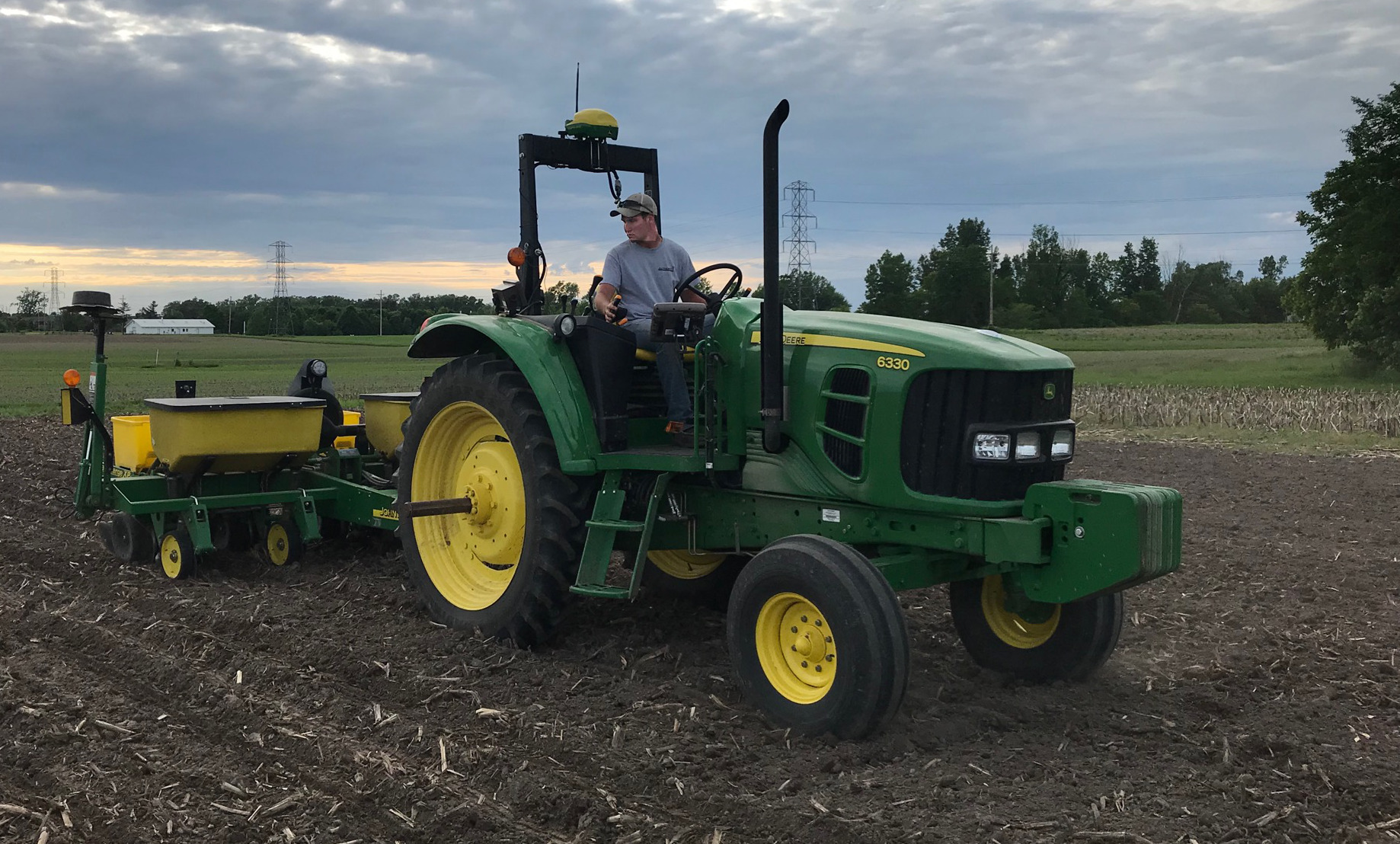
Dry Beans
Scott Bales, PSM faculty and dry bean systems extension specialist, works with farmers and researchers to develop the best dry bean varieties for local farmers, as well as methods and technology that translates beyond borders. “We focus on long-term agricultural sustainability: economic and environmental. Issues we work on here at MSU keep dry bean production as an important Michigan industry, Bales says.
The Michigan Bean Council has sponsored these
trials for more than 50 years, and they are now housed within MSU as public variety trials. “To me,” Bales says, “success is defined as the continuation and advancement of the industry as a whole.”
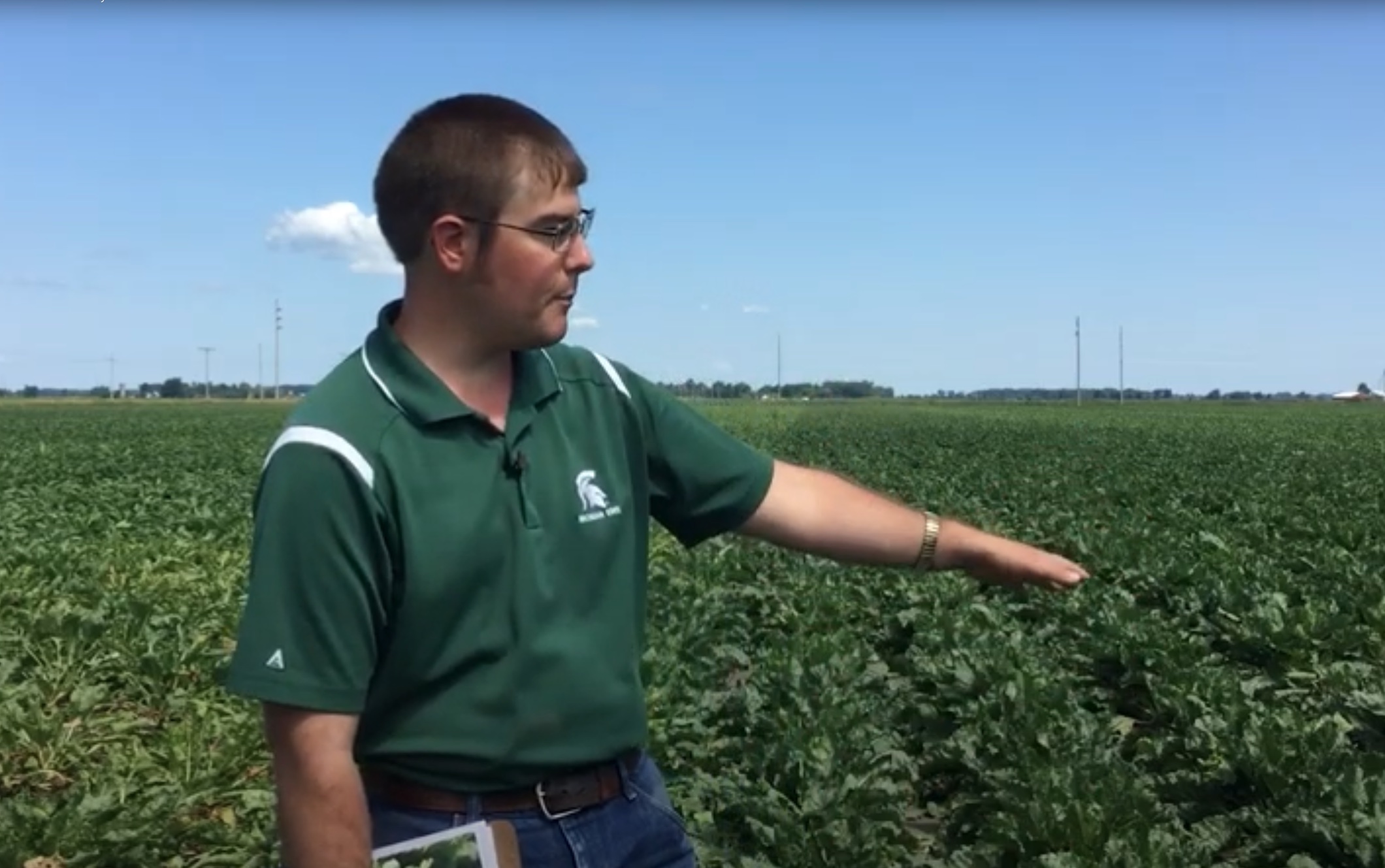
Sugarbeets
PSM faculty and Sugarbeet Advancement Program (SBA) extension specialist Daniel Bublitz conducts research and education for the sugarbeet farmers in Michigan and Ontario Canada. The direction of the program is set by researchers from MSU, the USDA, and the University of Guelph, as well as growers, Michigan Sugar Company representatives and other members of the agribusiness community.
“SBA conducts large plot strip trials, conducted in growers' fields,” says Bublitz. A unique method that complements the small plot work done by the other beet researchers at MSU and Michigan Sugar.
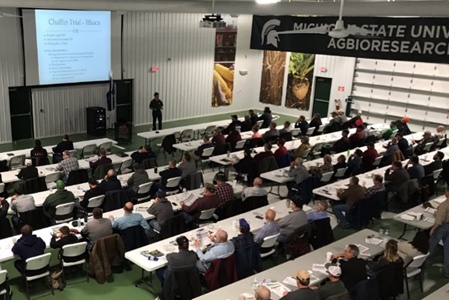
“The success of the SBA program is measured by the impact we have on growers, which we gauge by the attendance at our meetings, the feedback we receive from growers, and their continued support in funding the program.” As well, Michigan the sugarbeet industry has doubled productivity since this program began.
The grower-owners of Michigan Sugar Company have provided annual funding to SBA continuously since the creation of SBA in 1997. “The continued funding of the program by the growers of Michigan Sugar Company indicates that they recognize value in what SBA does, and are committed to supporting the program,” Bublitz says.



 Print
Print Email
Email
